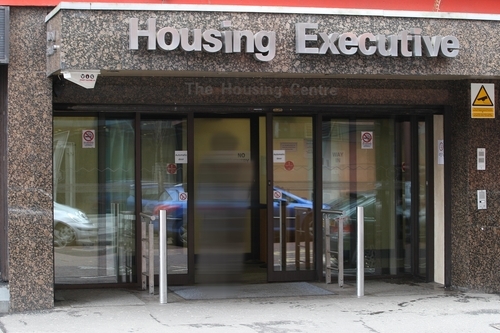The Housing Executive this morning again finds itself again at the centre of financial controversy with another damning report concluding that contractors have continued to be overpaid for work which they haven’t carried out during the last year.
The Northern Ireland Audit Office (NIAO) report comes less than 24 hours after the announcement of a Stormont Assembly inquiry to investigate allegations that DSD minister Nelson McCausland and First Minister Peter Robinson had attempted to place undue pressure on the Housing Executive not to suspend the maintenance contract of Red Sky in 2011.
As Social Development Minister Mr McCausland has been highly critical of the Housing Executive and its then chairman Brian Rowntree.
Mr Rowntree resigned last year days before Mr McCausland published a damning report into NIHE’s lack of financial control over maintenance contracts.
Crucially, while the report covers the period when Mr Rowntree was still in office in 2012 it also covers the subsequent period when Mr McCausland appointed existing NIHE chairman Donald Hoodless.
In his annual inspection of NIHE accounts, published this morning, Auditor General Kieran Donnelly has again found “significant problems” in the Housing Executive’s management of maintenance contracts, including:
• Contractors being paid for work which hadn’t been completed
• Double payments as staff were unsure what was included in contractors’ agreements
• Work being paid for twice as contractors claim for work that should have been completed at no additional cost
• NIHE paying contractors for materials which were never used.
The report estimates that contractors have been paid by £18m since 2008.
Auditor General Kieran Donnelly expresses concern that despite the Housing Executive being aware of overpayments since 2010 “it has taken so long for NIHE to address these issues” and notes the considerable degree of challenge by management to initial warnings from the audit office.
Mr Donnelly said that despite concerns raised in his previous audit of NIHE accounts “significant weaknesses in control have continued to emerge in the Housing Executive’s management of response and planned maintenance contracts.”
The report found that NIHE’s own Corporate Assurance Unit (CAU), which is responsible for reviewing contract management approved by NIHE staff, continues to issue significant numbers of ‘limited’ and ‘unacceptable’ opinions in its inspection of both planned and response maintenance work during 2012-13.
Out of a total of 26 housing districts inspected by CAU between 2011 and 2013 nearly two thirds (62%) had the standard of their contract inspection work judged as either limited or unacceptable.
In 2012 the Audit Office expressed concern that the Housing Executive had potentially overpaid one contractor £500,000 for kitchen replacements.
NIHE disagreed with the NIAO figures and claimed the total overpayments was much less.
The Audit Office report found that NIHE’s challenging of the overpayment figures had “led to delays in progressing this issue.”
A subsequent report, commissioned by the Housing Executive itself, confirmed “significant weaknesses” in its own management of contracts with normal contract management arrangements being:
“Set aside in favour of more relaxed procedures based on partnership, trust and mutual co-operation which meant that effective checking and inspection was not being carried out and consequently potential overpayments were not identified.”
Mr Donnelly said that he was: “very concerned that the Housing Executive’s seemingly lax controls appear to have resulted in such a large potential loss of public money.”
The Auditor General said he was “disappointed that these issues were not addressed earlier” when identified in 2010, adding: “Unfortunately there was a considerable degree of challenge by Housing Executive management to the findings of CAU which delayed the appointment of external surveyors until late 2012.”
Housing Benefit FraudThe report estimates that fraud and error in housing benefit rose by 50% last year by £10m.
Auditors found that £20.8m was made in overpayments with a further £4.7m being underpaid due to staff error.
“Worryingly the level of overpayments due to official error appears to have increased substantially, “Mr Donnelly said.
“In addition, I also note that the estimated level of underpayments due to official error has increased substantially, when compared with 2011, by 30 per cent to £4.7m.
“The level of fraud now more appears to be higher than at any time in the previous five years.
“This is particularly disappointing as it had been expected that the new Atlas system of electronic notification of changes in benefits this year would result in a decrease in fraud and error levels.”
Read full NIAO report including NIHE response here
© The Detail 2013
